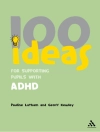A comprehensive introduction to all the key topics, perspectives, and themes that you will cover when studying criminology and criminal justice.
An Introduction to Criminology provides you with a thorough grounding in the main traditions and perspectives within the discipline and introduces cutting edge emerging themes that will shape criminology for years to come. It features insight from over 30 international experts with each chapter written by leading specialists within the field, giving you an in-depth and authoritative account of each vital area of study, from organised crime and victimisation to life-course criminology, prisons, and youth justice.
Key features:
- Covers emerging areas of criminology and contemporary issues such as cybercrime, cultural criminology, hate crime, human trafficking, and gendered violence.
- Contains a range of features to help you study, including case studies and questions, student voices and advice, reflective exercises and more.
- Supports lecturers by providing access to a suite of online resources, featuring exclusive video content from the SAGE Video Criminology Collection, critical thinking exercises, multiple choice tests, and sample essay questions.
Essential reading for any student of criminology, this will be a go-to reference text throughout your studies.
Table des matières
Part 1: Introduction to Crime and Criminology
Chapter 1: Being a Criminologist – Linda Asquith
Chapter 2: History and Crime – Eloise Moss
Chapter 3: Crime, Victimisation and Criminology – Jacki Tapley
Chapter 4: Tool of the Trade: Crime, Survey and Big Data – Andromachi Tseloni and Elaine Duncan
Chapter 5: Crime and the Media – Sarah Moore
Part 2: Theories and Concepts of Criminology
Chapter 6: Approaches to Criminological Theory – Michael Rowe
Chapter 7: Social Harm and Zemiology: Expanding the Horizons of Criminology – Thomas Raymen
Chapter 8: Feminist Criminologies – Loraine Gelsthorpe and Lucy Trafford
Chapter 9: Development and Life-Course Criminology – Tara Renae Mc Gee, David P. Farrington and Darrick Jolliffe
Chapter 10: Cultural Criminology – Keith Hayward and Jairo Matallana-Villarreal
Chapter 11: Southern and Comparative Criminology – Max Travers
Part 3: Contemporary Challenges
Chapter 12: Cyber Crime – Francis Gaffney and Carl Wearn
Chapter 13: Terrorism – Francis Gaffney
Chapter 14: Corporate Crime and the Regulation of Ecocide – David Whyte
Chapter 15: Organised and Transnational Crime – Xavier L’Hoiry and Jo Large
Chapter 16: Green Crimes and Green Criminology – Angus Nurse
Chapter 17: Trafficking and Exploitation – Laura Connelly
Chapter 18: Hate Crime – Neil Chakraborti and Stevie-Jade Hardy
Chapter 19: Race and Racialized Crime – Tina G. Patel
Chapter 20: Gender, Crime and Victimization – Nicola Groves
Part 4: Criminal Justice Practice
Chapter 21: Social Control – Murray Lee and Alex Simpson
Chapter 22: Models of Justice – Natasha Mulvihill and Marianne Hester
Chapter 23: Partnership and Multi-Agency Working: Tackling Domestic Abuse – Pamela Davies
Chapter 24: Policing – Ben Bradford
Chapter 25: The Crown Prosecution Service – Joanne Clough
Chapter 26: The Court System in England and Wales – Kayliegh Richardson
Chapter 27: Out of Court Disposals and Diversion – Paul Biddle, Lyndsey Bengtsson and Aaron Amankwaa
Chapter 28: Non-Custodial Sentencing – George Mair
Chapter 29: Prisons – Kate Herrity and Jason Warr
Chapter 30: Youth Crime and Youth Justice – Tim Bateman
Chapter 31: Victims, Witnesses and the Criminal Justice System – Pamela Davies and Ian R. Cook
Chapter 32: Being a Criminologist and Doing Real World Criminological Research – Jamie Harding
Chapter 33: Transitioning from Undergraduate Study of Criminology to Further Study and Your Working Life – Michael Rowe
A propos de l’auteur
Professor Michael Rowe′s research interests have tended to focus on accountability and governance in policing, and the changing organisation and delivery of policing in relation to diversity, professionalisation, the application of Evidence Based Policing and the challenges of policing in a digital age. A recent project has explored the changing nature of visible policing in relation to the impact of police buildings, material culture and social media on public perceptions of legitimacy and authority, as well as on police officer and staff professional culture and identity. Other projects have examined innovative police responses to domestic violence, organisational and cultural change in the policing of adult sexual assault investigations and the ethical and governance challenges of using scientific research and AI technology in contemporary policing. He is currently developing work exploring the policing of Anthropocentric climate change. He has published widely on these and related matters in the British Journal of Criminology, Policing and Society, Public Management Review, the Journal of Contemporary Ethnography, Criminology and Criminal Justice and many other journals. His books include Policing the Police (Policy Press, 2020) and Accountability in Policing: Contemporary Debates (Routledge, 2015, edited with Stuart Lister) and Introduction to Policing (Sage, 2018, third edition). He is editor of the International Journal of Police Science and Management.












